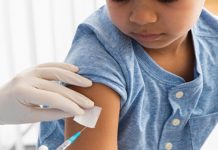Suicide is the leading cause of death in San Diego County.
The San Diego County Suicide Prevention Council and the Community Health Improvement Partners, along with the county of San Diego Health and Human Services Agency, Behavioral Health Services highlighted suicide prevention efforts held a press conference on Sept. 8 at the County Administration Center. The annual “Report to the Community” is released every year by the SPC.
The SPC is a collaborative community- wide effort focused on realizing a vision of zero suicides in San Diego County. Its mission is to prevent suicide and its devastating consequences in San Diego County.
On April 1, 2010, the County of San Diego awarded CHIP a contract to form an interagency Suicide Prevention Council to create and introduce a Mental Health Services Suicide Prevention Action Plan for San Diego County. With continued support from the county of San Diego, the SPC provides oversight, guidance, and collective support to implement the recommendations of the Suicide Prevention Action Plan.
“This year’s report spotlights the strides made by healthcare organizations to improve the quality and accessibility of mental health services across San Diego County. Suicide prevention efforts are bolstered in part by healthcare providers improving treatments, conducting patient safety assessments, and providing greater access to treatment. This network of care was also challenged by the COVID-19 pandemic. Despite experienced difficulties, there were opportunities for innovation through the use of telehealth and other technologies,” stated in the annual report.
District 4 Board of Supervisors Chair Nathan Fletcher said the decline of suicides in the county in 2020 compared to 2018 showed a decline.
“In San Diego County in 2020 there were 419 suicides. Resulting in a suicide rate of 12.9 per 100,000. This represents a significant decrease from 2018 where we lost 465 members of our community to suicide,” he said.
District 1 Board of Supervisors Vice Chair Nora Vargas said while supporting someone in crises is the key role of the Access & Crisis Line, she emphasized that you do not have to wait for a crisis to reach out.
“We need to continue to promote this resource until everyone in our community knows that trained professionals are standing by 24/7 to be there to listen, to connect, and connect a loved one who may need help as well,” she said.
Dr. Luke Bergmann, Behavior Health Services director said the Access & Crisis Line has trained professionals who offer support and services for those in crisis.
“If you just need to talk. Have questions on how to offer support to someone else, the line is free, confidential and assessable in 150 languages,” he said.
SPC Suicide Prevention Specialists Stan Collins said hope by spotlighting healthcare coordination and capacity in this year’s report that it can “connect and support more community members to the help that they need.”
The 2021 SPC Report to the community can be found at https://bit.ly/3tGyn2j.
For information about suicide, risk factors, warning signs, how to get help, resources and trainings that are available, visit It’s Up to Us (www.up2sd.org) or call the County’s Access & Crisis Line at (888) 724-7240. Veterans in crisis can call (800) 273-8255 and press 1, or text 838255











